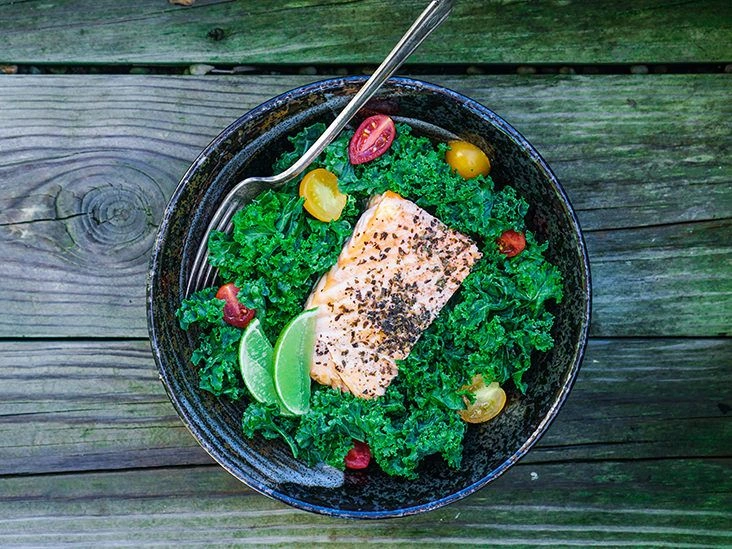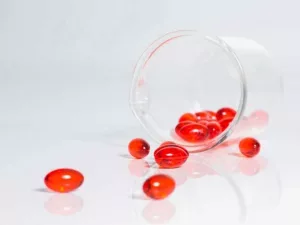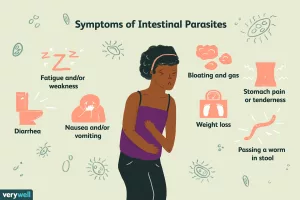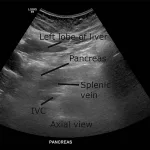Vitamin D and vitamin K function together. Some studies imply that vitamin D could be detrimental if not balanced by vitamin K, though further investigation is required.
Obtaining sufficient amounts of both vitamin D and vitamin K is important for optimal health.
Yet some sources warn that supplementing with vitamin D might be risky if vitamin K levels are low.
So what’s the reality? This article examines the evidence behind these assertions.
What Are Vitamins D and K?
Vitamins D and K are essential fat-soluble micronutrients.
They occur most densely in higher-fat foods, and their uptake into the bloodstream improves when consumed with dietary fat.
Often dubbed the “sunshine vitamin,” vitamin D is plentiful in fatty fish and fish oils, and it’s also synthesized by the skin upon sun exposure.
One of vitamin D’s main roles is to facilitate calcium absorption and to keep calcium concentrations in the blood adequate. A lack of vitamin D can contribute to bone loss.
Vitamin K is present in leafy green vegetables, fermented plant foods, and certain fatty animal products such as egg yolks, liver and cheese.
It’s essential for blood clotting and helps direct calcium into bones and teeth.
Summary:Vitamins D and K are fat-soluble nutrients that are crucial for the body’s calcium handling.
Vitamins D and K Work Together
When it comes to calcium regulation, vitamins D and K cooperate. Each has important, complementary functions.
The Function of Vitamin D
A principal role of vitamin D is to ensure adequate blood calcium levels.
Vitamin D can achieve this in two ways:
- Enhancing calcium absorption: Vitamin D increases the amount of calcium absorbed from the diet.
- Mobilizing calcium from bone: If dietary calcium is insufficient, vitamin D maintains blood calcium by drawing from the body’s main calcium reserve — the bones.
Keeping blood calcium within a proper range is vital. Beyond bone health, calcium participates in many critical physiological processes.
When calcium intake is too low, the body must tap into skeletal stores, which over time can cause bone weakening and osteoporosis.
The Function of Vitamin K
As described above, vitamin D raises blood calcium to meet physiological needs.
However, vitamin D does not fully determine where that calcium ends up. Vitamin K helps guide calcium placement.
Vitamin K influences calcium in at least two ways:
- Encourages bone mineralization: Vitamin K activates osteocalcin, a protein that helps deposit calcium into bones and teeth.
- Prevents soft-tissue calcification: Vitamin K activates matrix GLA protein, which inhibits calcium buildup in soft tissues, such as blood vessels and kidneys.
So far, relatively few randomized human trials have examined whether vitamin K supplementation affects vascular calcification, though additional studies are ongoing.
Calcification of blood vessels has been implicated in chronic conditions like heart and kidney disease.
Summary:Vitamin D’s main job is to keep blood calcium adequate. Vitamin K helps direct calcium into bones while preventing its buildup in soft tissues such as arteries.
Is Vitamin D Dangerous Without Vitamin K?
Some worry that high vitamin D intake could promote vascular calcification and cardiovascular disease in people with inadequate vitamin K.
Several pieces of evidence lend partial support to this concern:
- Vitamin D toxicity causes hypercalcemia: Extremely high vitamin D exposure (toxicity) can produce hypercalcemia — abnormally elevated blood calcium.
- Hypercalcemia can cause vascular calcification: In hypercalcemia, calcium and phosphate can reach levels that favor deposition of calcium phosphate in vessel walls.
- Vascular calcification links to heart disease: Experts consider vascular calcification a key contributor to cardiovascular disease.
- Vitamin K deficiency associates with vascular calcification: Observational studies have found that low vitamin K status correlates with increased vascular calcification risk.
- High-dose vitamin K prevented calcification in animals: A controlled rodent study showed that large doses of vitamin K2 prevented vascular calcification in animals predisposed to it.
- Vitamin K supplements may slow calcification in humans: One randomized trial in older adults reported that 500 mcg of vitamin K1 daily for three years reduced the progression of vascular calcification by about 6%.
- Higher dietary vitamin K2 may lower heart disease risk: People consuming more vitamin K2 from foods tend to have lower rates of vascular calcification and heart disease.
In short, extreme vitamin D toxicity can provoke vascular calcification, while vitamin K appears to counteract that process.
Despite these findings, some gaps remain. While very high vitamin D doses can cause hazardous calcium elevations and vascular calcification, it’s unclear whether more moderate vitamin D intakes pose long-term harm.
Back in 2007 a nutritionist suggested that large vitamin D doses might deplete vitamin K, potentially causing a functional vitamin K deficiency; however, this hypothesis needs more research for confirmation.
At present there is no robust evidence that moderate vitamin D supplementation is harmful in the absence of adequate vitamin K, though studies continue and the picture may evolve.
Summary:Researchers haven’t reached a definitive conclusion on whether high vitamin D intake is risky when vitamin K intake is low. Some evidence raises concern, but a clear answer is not yet available.
How Can You Get Enough Vitamin K?
Vitamin K exists in several forms, commonly grouped into two categories:
- Vitamin K1 (phylloquinone): The dominant form in plant foods, especially leafy greens such as kale and spinach.
- Vitamin K2 (menaquinone): Less common in the diet and mainly present in animal products and fermented foods like natto.
Vitamin K2 actually encompasses a family of compounds, including menaquinone-4 (MK-4) and menaquinone-7 (MK-7).
- MK-4: Occurs in animal-derived foods like liver, fatty cuts, egg yolks and cheese.
- MK-7: Produced by bacterial fermentation and found in fermented foods such as natto, miso and sauerkraut; it can also be synthesized by gut bacteria.
Dietary guidelines do not differentiate between K1 and K2. For adults 19 and older, the recommended adequate intake is about 90 mcg for women and 120 mcg for men.
The charts below display foods that are richest in vitamins K1 and K2 and the amounts provided per 100-gram serving.

Including some of these foods regularly will help you meet your vitamin K needs. Supplements are also an option.
Because vitamin K is fat-soluble, consuming it with a source of fat enhances absorption.
For example, drizzle a little oil over leafy greens or take supplements with a meal that contains fat.
Many vitamin K2-rich foods are also higher in fat, such as cheese, egg yolks and meats, which aids their absorption.
Consult your physician before taking large doses of vitamin K supplements, since they can interact with certain medications.
Summary:Vitamin K1 is plentiful in leafy green vegetables like kale and spinach. Vitamin K2 is found in animal-sourced foods (liver, eggs, cheese) and fermented foods such as natto.
The Bottom Line
Scientists are still unraveling the full roles of vitamins D and K.
How they interact isn’t yet fully defined, but research is gradually filling in the gaps.
Vitamin K clearly supports heart and bone health, but it remains uncertain whether high-dose vitamin D supplements are harmful when vitamin K intake is insufficient.
In any case, aim to get adequate amounts of both vitamin D and vitamin K from your diet, as both nutrients are important for health.

























Leave a Reply
You must be logged in to post a comment.